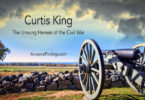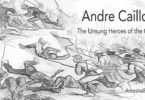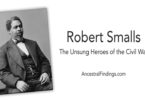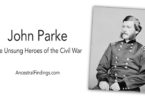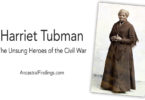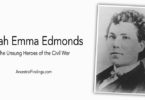Mary Elizabeth Richards Bowser was born about 1846 in Virginia, near Richmond. The daughter of enslaved parents, she was also enslaved from birth. Her owners were the Van Lew family. John Van Lew was a wealthy merchant, and though he owned slaves, his wife and daughter were secret abolitionists. This would be quite significant as Mary grew up.
From the beginning, the female Van Lews seemed to take a special interest in Mary, having her baptized at the Van Lew family church instead of the First African Baptist Church in Richmond where the other enslaved people of the Van Lew’s were baptized. Her name on her baptismal record is listed as Mary Jane Richards.
After John Van Lew died, his wife Eliza and daughter Elizabeth freed the family slaves, and Elizabeth sent Mary to a boarding school in Philadelphia so the formerly enslaved girl could get a good education. She even got to take a trip to Liberia in Africa to be a part of a missionary community, with the trip being funded by Elizabeth Van Lew. Not long before the Civil War began, Mary returned to the Van Lew home, and worked there once more, this time as a paid servant.
Mary married Wilson Bowser on April 16, 1861, only four days before the Confederate troops opened fire on Fort Sumter, beginning the Civil War in earnest. Records of Mary’s life are sparse, and it seems her husband joined the war on the Union side as a soldier, but there is no record of when (or if) they saw each other again. There are no records of Mary and Wilson having children together, or of Mary having children at all, but it doesn’t mean they didn’t.
Before the Civil War began, Elizabeth Van Lew (John’s daughter) was already spying for the Union, knowing the Confederate states were seceding and that war between the two sides was likely inevitable. Living in the south, Elizabeth would send regular reports to Union officials about what the southern troops and government officials were doing. When it was clear there was going to be a war, Elizabeth brought Mary into her spy ring by recommending her for a position as a servant in the household of Confederate President Jefferson Davis.
Mary got the job, though she was posing as a slave despite being a free woman. This ruse was quite successful for her, however. Because everyone in the Davis household thought she was a slave, they talked openly around her about their plans and strategies, thinking a slave would have no understanding of these things, and certainly no network of communication.
Most of the people Mary encountered in the Davis household assumed she was illiterate, which was not true, thanks to Elizabeth Van Lew sending her to boarding school. This meant that the many people who came in and out of the Davis household often left important papers out where Mary could see them, and she would report back to Elizabeth and other Union officials on what those papers said.
Mary became a successful and important spy for the Union in her position at Jefferson Davis’s house. Some of the intelligence she collected even made it all the way to General Ulysses Grant, and all of it was passed on to the military leaders it would help the most. In fact, the intelligence collected by Mary, and by Elizabeth Van Lew’s spy ring in general, was noted for its value in the personal papers of Ulysses Grant, General Benjamin Butler, and George S. Sharpe.
Because the US government destroyed most records of Mary, Elizabeth, and others in the Van Lew spy ring after the war to protect them, little is known of what Mary did after the war. What little is known is interesting, and shows that Mary continued to work to help the former enslaved community. Just a few days after Richmond fell to the Union, Mary was working there as a teacher to the former slaves in town who suddenly found themselves free.
She founded a school for freed former slaves two years after the end of the war. It was located in the town of Saint Marys, Georgia, and served children during the day, adults at night, and Sunday school on Sundays, with all classes for all age groups taught by her personally.
In June of 1867, Mary wrote a letter to the Superintendent of Education for the Georgia Freedmen’s Bureau, in which she requested he refer to her as Mary J. R. Garvin from then on. This indicates her husband, Wilson Bowser, had either died, deserted her, or they divorced, and that she had likely remarried. However, this is the only known mention of the surname Garvin associated with Mary, and the first name of her presumed new husband is not known.
Mary gave at least two known lectures in the North about her education, her travel to Liberia, and about her adventures as a spy during the war. She used pseudonyms for both lectures to protect herself because these lectures were given so shortly after the end of the war.
It is assumed she left the school she founded in Saint Marys, Georgia sometime after writing to the superintendent, and went to the West Indies, where it is believed her presumed new husband had gone to do missionary work. No record of Mary’s death or place of burial is known to exist. That letter to the superintendent is the last known official record of Mary.
This does not mean popular culture forgot her. A novel by Lois M. Leveen called The Secrets of Mary Bowser is based on Mary’s life. A play by Ted Lange called Lady Patriot is also about Mary, and was produced by Mary Lange and performed at the Hudson Backstage Theater in Santa Monica, California, with actor Chrystee Pharris playing Mary Bowser. A made for TV movie in 1987 called A Special Friendship was based on the friendship and spy activities of Mary Bowser and Elizabeth Van Lew. In addition, the central character of the book, An Extraordinary Union, by Alyssa Cole, is based on Mary Bowser.
Mary Bowser was honored by the US government by being inducted into the Military Intelligence Hall of Fame in Fort Huachuca, Arizona for her work as a spy during the Civil War.

